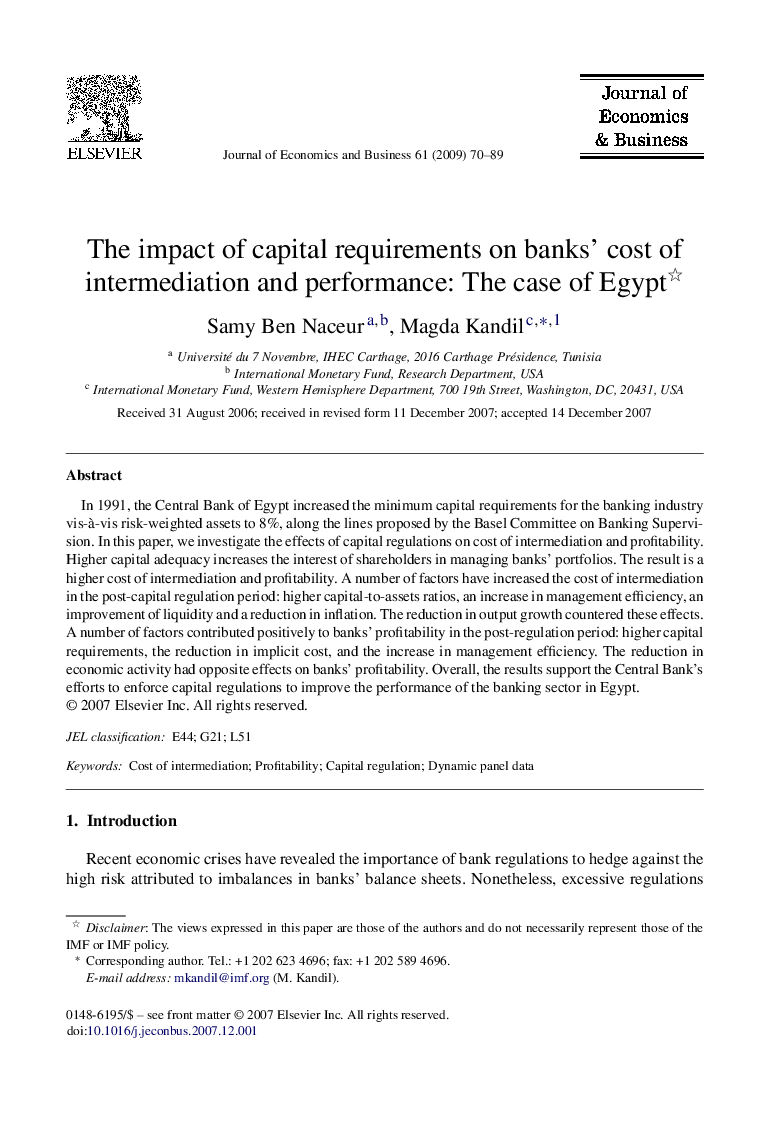| Article ID | Journal | Published Year | Pages | File Type |
|---|---|---|---|---|
| 958225 | Journal of Economics and Business | 2009 | 20 Pages |
In 1991, the Central Bank of Egypt increased the minimum capital requirements for the banking industry vis-à-vis risk-weighted assets to 8%, along the lines proposed by the Basel Committee on Banking Supervision. In this paper, we investigate the effects of capital regulations on cost of intermediation and profitability. Higher capital adequacy increases the interest of shareholders in managing banks’ portfolios. The result is a higher cost of intermediation and profitability. A number of factors have increased the cost of intermediation in the post-capital regulation period: higher capital-to-assets ratios, an increase in management efficiency, an improvement of liquidity and a reduction in inflation. The reduction in output growth countered these effects. A number of factors contributed positively to banks’ profitability in the post-regulation period: higher capital requirements, the reduction in implicit cost, and the increase in management efficiency. The reduction in economic activity had opposite effects on banks’ profitability. Overall, the results support the Central Bank's efforts to enforce capital regulations to improve the performance of the banking sector in Egypt.
